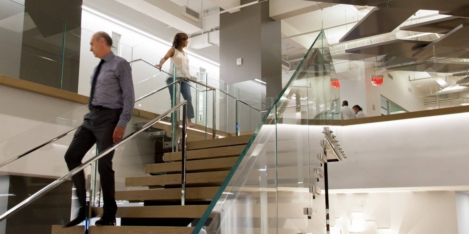July 20, 2018
New code of practice for employers to improve health and wellbeing for staff
 BSI, the business standards company, has launched a new code of practice for organisations to help tackle a crisis in the mental health and wellbeing of Britain’s workforce. 137 million working days were lost to sick leave in the UK in 2016, with organisations spending £9 billion each year on sick pay and associated costs. The cost of ‘presenteeism’ – where employees attend work whilst ill and do not work efficiently – has also risen sharply in recent years. The code of practice, PAS 3002, provides recommendations to establish, promote, maintain and review the health and wellbeing of workers within an organisation. It considers how health and wellbeing should be incorporated into the working environment and how leadership can ensure health and wellbeing related services are available to employees.
BSI, the business standards company, has launched a new code of practice for organisations to help tackle a crisis in the mental health and wellbeing of Britain’s workforce. 137 million working days were lost to sick leave in the UK in 2016, with organisations spending £9 billion each year on sick pay and associated costs. The cost of ‘presenteeism’ – where employees attend work whilst ill and do not work efficiently – has also risen sharply in recent years. The code of practice, PAS 3002, provides recommendations to establish, promote, maintain and review the health and wellbeing of workers within an organisation. It considers how health and wellbeing should be incorporated into the working environment and how leadership can ensure health and wellbeing related services are available to employees.





































July 5, 2018
Why a Google office simply does not work for everybody 0
by Dr Caroline M. Burns • Comment, Facilities management, Technology, Workplace design
(more…)